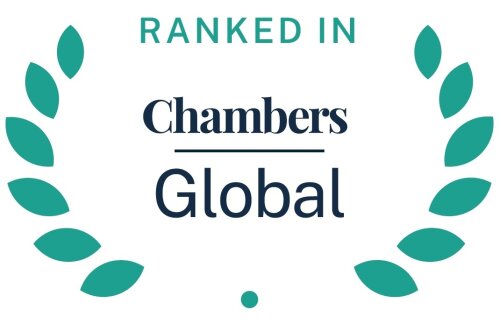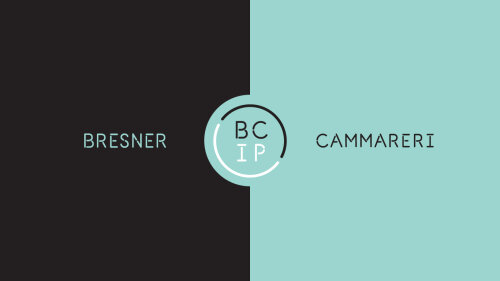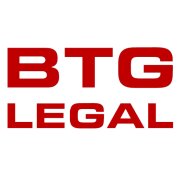Best Media and Entertainment Lawyers in Milan
Share your needs with us, get contacted by law firms.
Free. Takes 2 min.
List of the best lawyers in Milan, Italy
About Media and Entertainment Law in Milan, Italy
Milan is recognized as a cultural and commercial hub in Italy, famed for its contribution to fashion, art, and entertainment. The city's dynamic environment has fostered a thriving media and entertainment scene, comprising television, music, film, print media, and digital platforms. Media and Entertainment Law in Milan encompasses various legal services, including intellectual property rights, production agreements, licensing, broadcasting regulations, and electronic communication permissions. Lawyers in this field help navigate the intricate local and international regulations that govern these industries, enabling artists, producers, and companies to protect their creative outputs and interests.
Why You May Need a Lawyer
Several scenarios might necessitate legal assistance in the media and entertainment sectors. These could include negotiating contracts and ensuring compliance with broadcasting standards or intellectual property laws. Artists may require legal help to protect their work from unauthorized use or to resolve disputes over royalties and licensing. Producers and media companies could seek legal advice to draft partnership agreements or tackle regulatory compliance issues. Additionally, with the rise of digital media, legal guidance is often essential to understand and manage online content rights and liabilities.
Local Laws Overview
Milan's legal framework in media and entertainment is heavily influenced by both national legislation and EU regulations. Key aspects include intellectual property protection encompassing copyrights, trademarks, and patents, which are crucial for safeguarding artistic works and brands. Privacy laws, particularly the General Data Protection Regulation (GDPR), play a significant role in managing personal data, particularly in digital media environments. Furthermore, Italy's audiovisual media services directive regulates television broadcasting and online platforms to maintain fair competition and protect cultural diversity. Licensing requirements for media operations are overseen by the Autorità per le Garanzie nelle Comunicazioni (AGCOM), which ensures compliance with national communication guidelines.
Frequently Asked Questions
What is the role of a media and entertainment lawyer?
A media and entertainment lawyer assists clients in navigating legal issues related to the creation, distribution, and protection of media content. They offer services including contract negotiation, intellectual property protection, risk management, and dispute resolution.
How can I protect my intellectual property as an artist in Milan?
To protect your intellectual property, you should register your work with the appropriate authorities, such as the Italian Patent and Trademark Office for trademarks and the SIAE for copyrights. Legal advice can further ensure comprehensive protection tailored to your specific needs.
What are the common contract issues in the entertainment industry?
Common contract issues involve terms related to intellectual property rights, distribution agreements, production financing, and performance obligations. Legal help can ensure fair agreements and protect your interests.
What are the essential considerations for licensing music for commercial use?
Licensing music for commercial use involves acquiring the right permissions from copyright holders. This typically includes mechanical rights, synchronization rights, and public performance rights, which can vary based on the intended use.
How do privacy laws affect media companies in Milan?
Privacy laws, especially the GDPR, affect how media companies collect, store, and process personal data. Understanding these regulations is crucial to avoid hefty fines and uphold consumer trust.
How can I resolve a dispute over royalties?
Disputes over royalties can be resolved through negotiation, mediation, or legal proceedings. A legal professional can guide you through the most effective dispute resolution method depending on your situation.
What legal obligations must be met when broadcasting content in Milan?
Broadcast content must comply with national and EU audiovisual regulations, which include rules on advertising, program diversity, and copyright laws. Legal counsel can help ensure all obligations are met.
Can I use images or videos of Milan landmarks in my productions without permission?
Using images or videos of certain landmarks for commercial purposes may require permission from municipality authorities. It is important to consult legal advice to ascertain when permission is necessary.
Are there any special considerations for digital versus traditional media legal issues?
Digital media often involves additional considerations such as online content rights, e-commerce regulations, and cybersecurity laws. Ensuring compliance in both digital and traditional spheres requires specialized legal knowledge.
What should I consider when choosing a media and entertainment lawyer in Milan?
When choosing a lawyer, consider their experience in the specific area of media and entertainment, their understanding of both local and international laws, and their ability to provide tailored legal solutions.
Additional Resources
For further assistance, consider engaging with organizations such as the Associazione Italiana per la Tutela della Proprietà Intellettuale (AIDA) and Autorità per le Garanzie nelle Comunicazioni (AGCOM). Additionally, the Camera di Commercio di Milano Monza Brianza Lodi offers guidance for businesses in the media sector. Consulting these resources can provide valuable insights and assistance.
Next Steps
If you require legal assistance in media and entertainment, start by consulting with specialists who have experience in the field. Prepare a comprehensive overview of your needs and gather all relevant documentation. It may be beneficial to seek initial consultations with several lawyers to find the one that best aligns with your needs. Confirm their familiarity with current digital media trends and ensure they have a strong understanding of both local and EU regulations pertinent to your situation. Taking these steps will put you in a strong position to manage your legal requirements effectively.
Lawzana helps you find the best lawyers and law firms in Milan through a curated and pre-screened list of qualified legal professionals. Our platform offers rankings and detailed profiles of attorneys and law firms, allowing you to compare based on practice areas, including Media and Entertainment, experience, and client feedback.
Each profile includes a description of the firm's areas of practice, client reviews, team members and partners, year of establishment, spoken languages, office locations, contact information, social media presence, and any published articles or resources. Most firms on our platform speak English and are experienced in both local and international legal matters.
Get a quote from top-rated law firms in Milan, Italy — quickly, securely, and without unnecessary hassle.
Disclaimer:
The information provided on this page is for general informational purposes only and does not constitute legal advice. While we strive to ensure the accuracy and relevance of the content, legal information may change over time, and interpretations of the law can vary. You should always consult with a qualified legal professional for advice specific to your situation.
We disclaim all liability for actions taken or not taken based on the content of this page. If you believe any information is incorrect or outdated, please contact us, and we will review and update it where appropriate.













